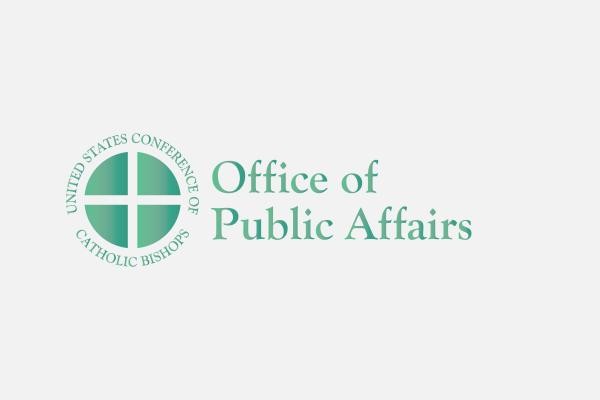U.S. Bishops’ Collection for Church in Central and Eastern Europe Brings Hope to Ukraine and Beyond
When the first bombs struck Ukraine nearly a year ago, aid was already coming in from Catholics in the United States through the U.S. bishops’ Collection for the Church in Central and Eastern Europe.
WASHINGTON - When the first bombs struck Ukraine nearly a year ago, aid was already coming in from Catholics in the United States through the U.S. bishops’ Collection for the Church in Central and Eastern Europe.
On Ash Wednesday, February 22, Catholics are again encouraged to give to this annual collection, which for three decades has helped churches in 28 nations to recover from communist oppression. Some dioceses will take the collection on a different date. #iGiveCatholicTogether also accepts donations.
“As the war began, Catholics in the United States quickly mobilized to help Ukrainians. I pray that you will continue that generosity to central and eastern Europe, bringing healing where there is war, hope where there is despair, and faith that will lead to justice and peace,” said Bishop Jeffrey M. Monforton of Steubenville, chairman of the U.S. Conference of Catholic Bishops’ Subcommittee on Aid to the Church in Central and Eastern Europe.
“Last year, thanks to your generosity, some dioceses doubled or even tripled their giving, but as the war in Ukraine continues, the need continues there, and in other countries within the region, the need has also grown substantially.”
In the first few months of the war in Ukraine, the U.S. bishops expedited nearly 50 emergency grants for war-related relief to churches and Catholic organizations in Ukraine and several neighboring countries.
One such grant, approved on the day of Russia’s invasion, helped the Catholic relief organization Caritas Ukraine to expand and improve its network of shelters, equipping them with heat, food, basic supplies, and social assistance to minister to the traumatized masses. Another immediate grant provided satellite communications so the leadership of the Ukrainian Greek Catholic Church could coordinate the efforts of its priests to continue their ministry and offer pastoral care and first aid to the wounded, as well as provide food, shelter, and psychological support.
Another country in the region that seeks help from the collection is Moldova, which has a high poverty rate, a small Catholic population, and only 20 Catholic parishes in the entire country. Despite these challenges, Moldovans opened their arms in welcome to the highest number of Ukrainian refugees per capita among countries in the region. Before the war, the Collection for the Church in Central and Eastern Europe was already financing a collaboration between the parishes and Caritas Moldova to create a network of centers where children at risk of abuse or neglect can experience a supportive Christian environment.
The last full financial report is from 2021 when the collection made 348 grants totaling nearly $6.5 million for pastoral and humanitarian work, fostering vocations, and seminary education.
In some of the countries in central and eastern Europe, Catholics are a tiny minority of the population. Estonia has approximately 7,000 Catholics, but a grant helps five parishes on the Russian border to care for people who are poor and marginalized. In Bulgaria, where there are too few Catholics to fully staff the social services of Caritas Bulgaria, a grant provides non-Catholic staff and volunteers with formation in Catholic social teaching.
Nations with a historically strong Catholic presence also need assistance. A grant helped the Diocese of České Budějovice in the Czech Republic to launch an innovative evangelization initiative, teaching parish leaders new ways to invite non-believers to explore the faith. In Slovenia, a grant is revitalizing religious education by financing the translation and publishing of manuals and workbooks of the Catechesis of the Good Shepherd, which introduces children to the mysteries of faith and life through the Bible and the Liturgy.
For more information and resources to promote the Collection for the Church in Central and Eastern Europe see www.usccb.org/ccee.
###
Media Contacts:
-
Chieko Noguchi

